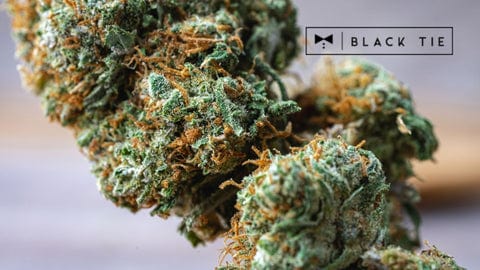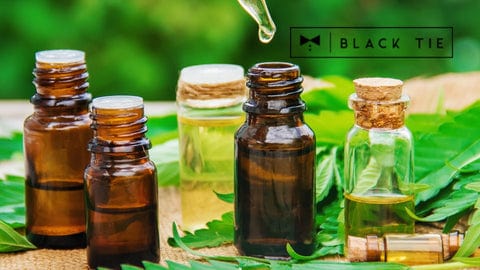What Is Hemp Derived Delta 9, and is it legal?
The hemp-derived cannabinoid market continues to grow and evolve despite lingering questions over federal legality and numerous state laws that try to keep pace.
You may have seen or even tried products with a few milligrams of Delta-9 Tetrahydrocannabinol (THC) that were marketed as 2018 Farm Bill-compliant, and if you know anything about the restrictions of the industry; then you’ll know that there are a plethora of laws making THC illegal in multiple states. While delta-9 is the cannabinoid that distinguishes hemp from its federally illegal counterpart, marijuana - companies are still selling Delta-9 products.
So what makes some products ‘compliant’ and some illegal? To begin, we need to go over what exactly Delta-9 is, as well as the difference between cannabis-derived, and hemp-derived THC.
Delta-9 Tetrahydrocannabinol (THC)
THC stands for delta-9-tetrahydrocannabinol or Δ-9-tetrahydrocannabinol (Δ-9-THC). It is a cannabinoid molecule in marijuana (cannabis) that's long been recognized as the main psychoactive ingredient—that is, the substance that causes people who use marijuana to feel high.
Delta-9-THC and Delta-8-THC are the only compounds in the marijuana plant that produce psychoactive effects. Because Delta-9-THC is much more abundant than Delta-8-THC, the psychoactivity of marijuana has been attributed largely to the effects of Delta-9-THC.
The Effects Of Delta-9 THC
The main differentiation between Delta 9 THC and Delta 8 THC is the effects they both provide, which is also the deciding factor for customers. This cannabinoid interacts with the CB1 receptors that are located in the brain, responsible for many processes in the mind such as decision-making, memory, and others.
This powerful compound is said to provide effects such as excitement, euphoria, anxiety, perceptual and visual alterations, restlessness, and others. The effects can be very intense for some users, while others enjoy the outer-worldly experience.
Hemp Vs Cannabis
Although hemp and cannabis look similar, from a functional and chemical perspective, they are distinctive. The term “hemp” is used to describe cannabis that contains 0.3 percent or less THC content per gram on a dry weight basis. Legally, “marijuana” refers to cannabis that has more than 0.3 percent THC by dry weight. THC content can vary among cannabis plants. Some strains are bred to be higher in THC than others.
According to federal law, cannabis—with 0.3% THC content or higher—is classified by the DEA as a Schedule I drug with no accepted medical use. CBD products sourced from cannabis, even those with 0% THC, are illegal at a federal level by virtue of their plant origin. Industrial hemp, on the other hand, is no longer considered a Schedule I controlled drug. Following the 2018 farm bill, hemp was reclassified as an agricultural commodity.
There is no significant difference between hemp delta-9 and regular delta-9, aside from the source. The chemical itself is absolutely identical. The distinction between the delta-9s comes purely from the source, with hemp delta-9 coming from hemp and “regular” delta-9 coming from a standard cannabis plant.
Hemp-Derived THC and the FDA
The 2018 Farm Bill explicitly preserved the authority of the Food and Drug Administration (FDA) to regulate products containing cannabis or cannabis-derived compounds under the Federal Food, Drug and Cosmetic Act. The FDA currently prohibits THC or CBD products from being sold as dietary supplements or as food additives, though the agency is actively investigating whether a pathway should exist for certain CBD ingestible products through the agency’s rulemaking process.
Hemp-Derived THC and State Law
At the state level, the 2018 Farm Bill permits states to implement their own regulatory scheme for the production of hemp so long as the plan is approved by the U.S. Department of Agriculture (USDA).
Is Hemp-Derived Delta-9 Legal?
The confusion surrounding its legality comes from the 2018 Farm Bill, but in a sense there is no cause for confusion at all. The Farm Bill legalizes “hemp” at the federal level, and provides the following definition for hemp:
“The plant Cannabis sativa L. and any part of that plant, including the seeds thereof and all derivatives, extracts, cannabinoids, isomers, acids, salts, and salts of isomers, whether growing or not, with a delta-9 tetrahydrocannabinol concentration of not more than 0.3 percent on a dry weight basis.”
Again, state law requires a state-by-state analysis to determine whether a product is legal. There is no “one size fits all” solution and, depending on where a product is sold, there may be labeling, testing and other restrictions to satisfy before a hemp-derived product may be sold legally. To date, states that have enacted state regulations have focused on hemp-derived CBD – not THC or the so-called “novel” cannabinoids such as CBG, CBN and THCA.
Hemp delta-9 is Farm Bill compliant whenever it meets the requirement that it isn’t higher than 0.3% in concentration. Since hemp-derived Delta 9 is legal, you can find it in local dispensaries or even better, online! Like the products that we offer here at Black Tie CBD.
Our Delta-9 products:
Chill Delta 9 THC Microdose Tincture + Terpenes - Pineapple (Indica)
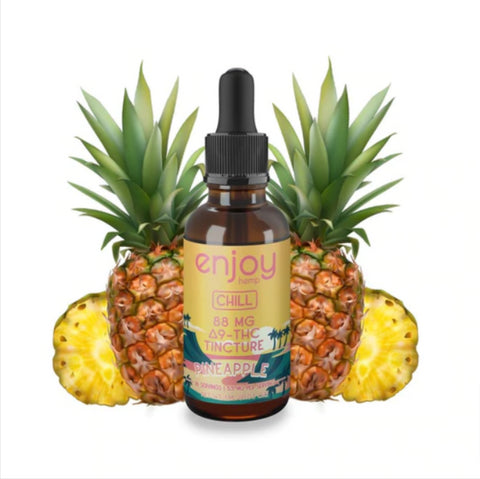
Want to Microdose THC? We have the perfect product for you. Our fast-acting Delta 9 Tinctures contain 5.5 mg of Pure Delta 9 THC plus terpenes in each dose.
420 Mg Delta 9 THC Syrup For Zen - Strawberry (Hybrid)
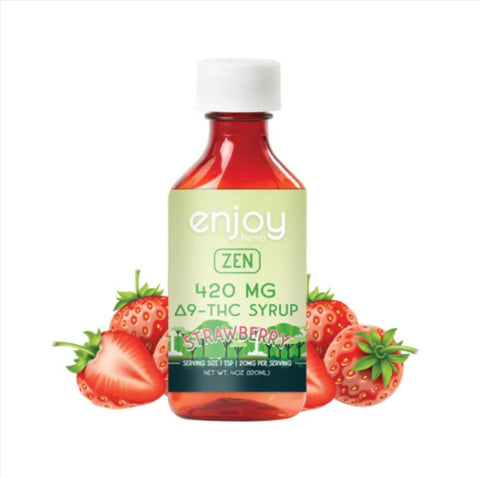
Looking to find Zen? Find Zen with our Strawberry Hybrid infused Delta 9 Fast Acting Drink Additive/Syrup. This 420 mg bottle comes with approximately 21 servings of 20 mgs per dose. 20 mg Delta 9 THC per serving Fast absorption within as little as 15 minutes.
250 Mg Euphoria Delta 9 THC Gummies - 10 Mg Each (Sativa)
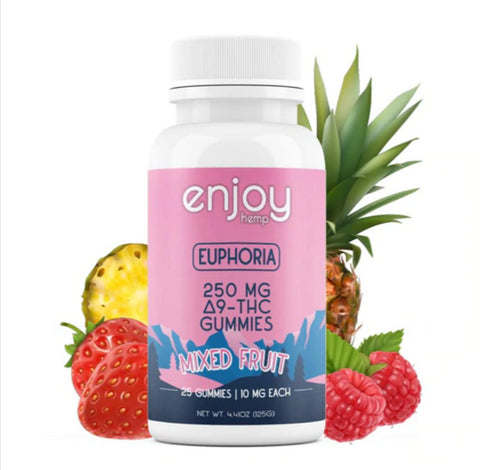
Want to experience5 Euphoria? Our blend of Sativa terpene-infused Delta 9 THC gummies will have you headed to a state of Euphoria! Terpenes include Alpha Pinene and Limonene. Our Delta 9 THC Gummies are 100% Hemp Derived.





